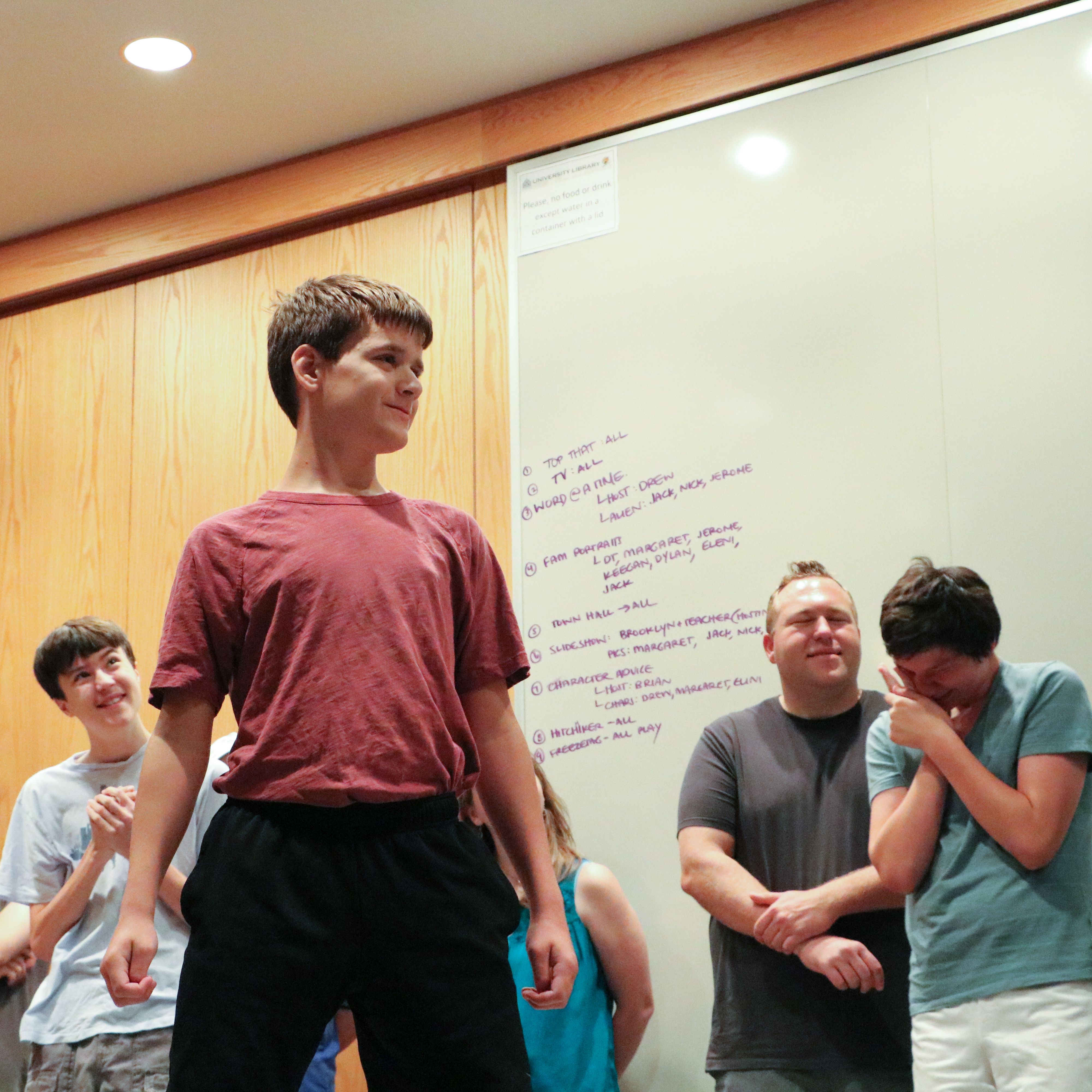Communication and social skills are pretty important. When young people struggle to connect with others, it’s difficult to form friendships, teacher/student relationships suffer, and it’s hard to succeed in the workplace. Some research even shows that social communication skills are a critical piece of reading comprehension! Our improv camps and classes support youth with autism to strengthen these critical skills and create feelings of safety, belonging, and connection.
We’ve seen measurable improvements in communication and social skills.
Before and after a camp session, an outside evaluator administers surveys to measure teens’ communication and social skills. We’ve seen significant, positive changes. Teens demonstrate a greater understanding of their strengths and weaknesses in communicating with others. They feel more confident in their communication skills. It’s easier to “read” or “figure out” others. Teens are more willing to be flexible and add onto others’ ideas, rather than steering the conversation toward their own interests all the time. We’re thrilled to see measurable improvements, but what’s even more powerful than these data are the words of our teens.
"If I make a mistake it's no big deal, just a plot twist!"
Improv supports people to take risks and let go of mistakes. It’s tough for learning to take place without this feeling of safety. At camp, we use the “Failure Bow” to reinforce this idea. Any time a camp participant (teen, teacher, or staff) feels like they “messed up,” they may decide for themselves to take a failure bow. “I failed!” they shout, and then they take a grand bow, while the group applauds and celebrates them. Celebrating failure can be a controversial idea, but here’s how I think about it: We’re not celebrating the mistake itself. Mistakes are signs that we’ve pushed ourselves beyond what we already knew and could do. That bravery is what we celebrate, and I believe it’s central to helping our teens develop the confidence to communicate and interact socially.
"Camp gave me a safe home, a safe haven.”
In many improv teams, the last thing we say to each other before we take the stage is, “Got your back.” Lots of people think improv is about being funny, creative, or clever. Those things are great, but master improvisers know how to make other players look good. They watch and listen closely to the progress of a scene, and they think about what the scene needs – what their teammates need – rather than focusing solely on their own ideas. Improvisers learn to take care of each other. Even in a scene where I play someone’s bitterest enemy, I’m listening to, accepting, and supporting my teammate’s ideas. At camp, everyone belongs. Everyone’s ideas are valid, and I believe these practices lead to the increases in flexibility and reciprocity that we see in the data.
"This camp’s just opened me up like an eggshell – just cracking open my true self.”
I’ve talked to lots of the parents and family members of teens who attend our camps and classes, along with the classes offered by our inspirational colleagues at the Hideout Theatre in Austin, Texas. After parents watch their kids perform in an improv showcase at the end of a camp or class series, I like to ask, “Did you know they could do that?” I tend to get two kinds of answers. Some parents say that they didn’t know their kids could be so spontaneous, creative, and entertaining. Other parents say, “I knew, but nobody else did.” Communication and social skills aren’t just about our outward behavior. They’re about expanding our understanding of ourselves, expressing that growing understanding to others, and giving others the space to do the same. Improv isn’t the only way to support this process, but it sure is a fun one.


